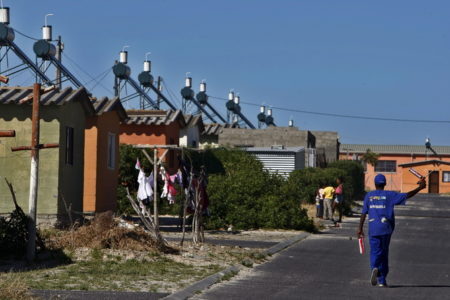It’s not a good time to be either LG or Sony. Both companies have recently reported declines in smartphone sales.…
Browsing: Internet News
Facebook envisions a future in which people will be able to type out words and send messages using only their minds with project Moonshot.
Twitter revealed its new look today, and the social network reckons it’s designed to conform with its mobile app design. And we’re not convinced.
The core idea behind the Bitcoin system is to make all the participants in the system, collectively, the bank. To do this, blockchains are used. Blockchains are distributed, tamper-proof ledgers, which can record every transaction made within a network.
I think it’s a good thing that President Cyril Ramaphosa is dreaming of a high-tech future. We need someone to dream big about the way our country will operate, not in some distant sci-fi future, but in the next few years. We need to start embracing the technologies that can make us a better place to live, find work for our youngsters in the new growth industries, and make us more attractive to investors.
You can now get schwifty with your favourite Adult Swim characters and feature as a character in one of the upcoming Rick and Morty episodes.
These days all text is digital. From writing an email to publishing a new edition of War and Peace, text nearly…
It’s more likely that blockchain, and even Libra, is a means to a end; Calibra is about Facebook wanting to be not only the world’s biggest social media platform but also the globe’s go-to marketplace, putting Amazon, eBay, Apple and Google in the shade.
Man, these product tie-ins are getting complicated. Last week Microsoft teased a throwback to its initial Windows operation system, Windows 1.0. At the time, we had no idea why all the time travel. Now, we know. It was indeed a tie-in with Stranger Things Season 3, which released last week on that one holiday Americans are always surprised the rest of the world doesn’t celebrate.
Gestures and emoji don’t break down into smaller parts. Nor do they easily combine into larger words or sentences (unless we’re using a clunky version of the grammar of our language).










